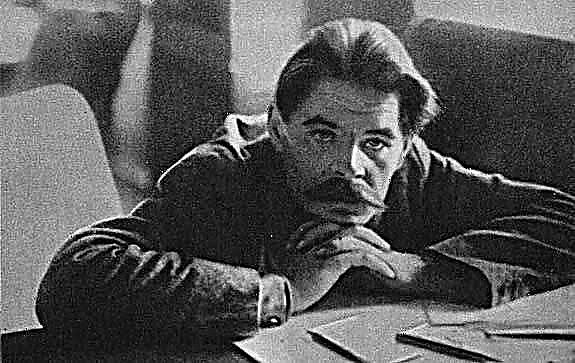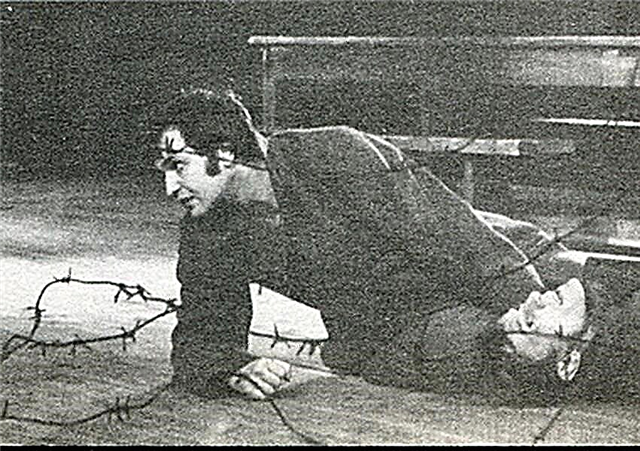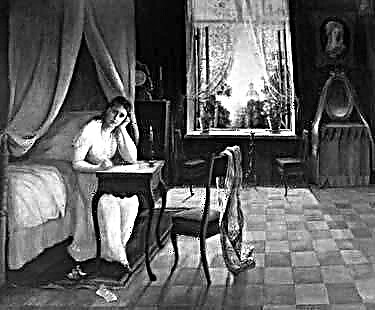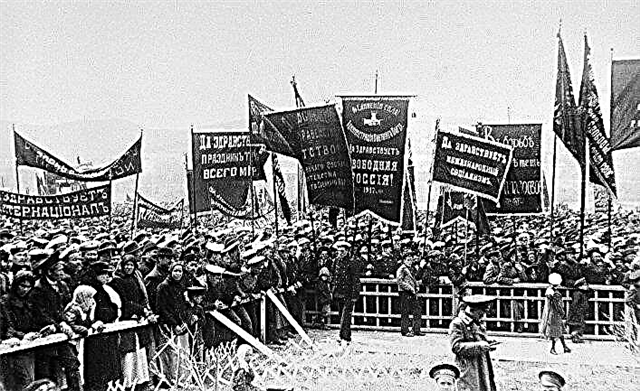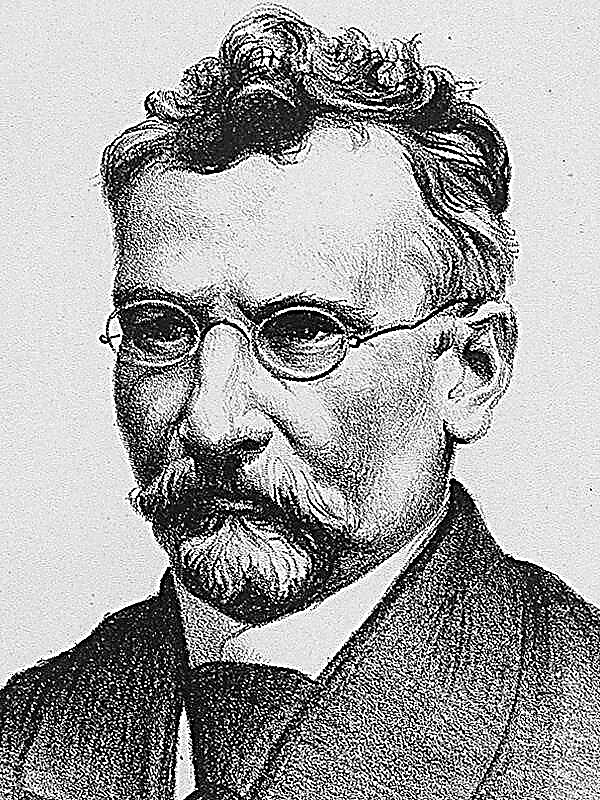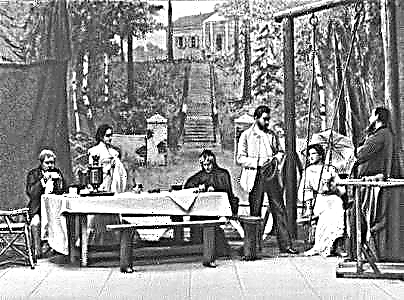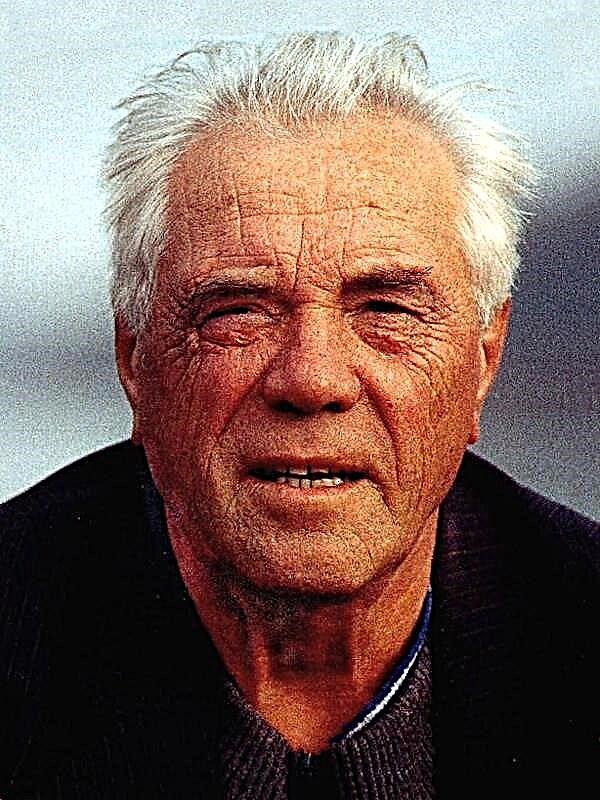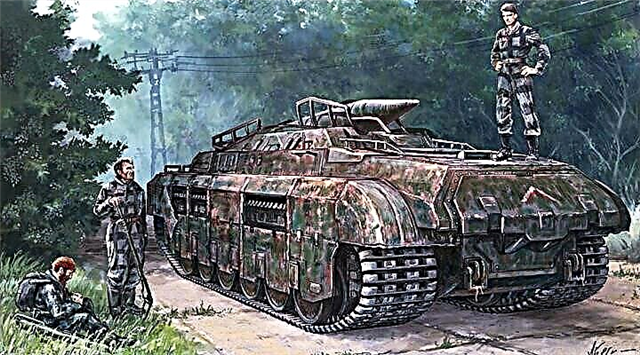In the family of a God-fearing merchant, a first-born son is born. Parents love him and constantly pray to God for him. The son grows up and is interested in commercial affairs, discovering in his conversations with his father a sound mind and ingenuity. When the merchant’s relatives are going to go overseas to trade, the son asks his father to give him three hundred rubles and let him go with them.
After three years and three months, they arrive in a certain kingdom and begin trade. The merchant's son is asking the price of goods, but is in no hurry to buy anything. One day he sees a certain person mercilessly dragging a dead body over the trading area. Having met this man for the third time, the merchant’s son decides to speak with him, and he tells him that the deceased was a Christian and owed him three hundred rubles, but died without paying, and the relatives of the deceased also did not repay his debt, so he dug the body from the grave and dragging the deceased to the relatives of the deceased so that they would be ashamed and redeemed him.
The merchant son, being pious, buys the body of a deceased Christian for three hundred rubles, but is afraid to return to the ship to his relatives so that they do not laugh at him. Everywhere they are looking for a young man, they despair, and without him they sail home, telling their parents that their son was gone.
And the merchant’s son at this time finds other shipbuilders who know his father, tells them that his ship crashed and now he has nothing to get to his house, and he also has the dead body of his uncle in his arms, and there’s nowhere to bury him, because only non-baptized people live in this kingdom. Those agree to take him with the dead to the ship.
They come to the island on which the monastery stands, the miracle of the creator of Nicholas. The merchant's son asks the shipbuilders for a loan of one hundred rubles, and with this money he hands the body to the ground. The young man laments, not knowing what to say to his father, how to explain where he spent all the money. He buys a horse, comes home and tells his father that he bought the goods, but owed him a hundred rubles to the shipbuilders. The father gives him money, thinking that his son will pay back and return home, but he leaves the city: he is ashamed of his father for wasting his money, and in order not to disgrace his parents, he leaves his native land, where he looks.
In the forest he meets a man of great growth with iron ticks in his hands, who wants to engage in service, but with one condition: his master will always have to obey his advice. The young man agrees. They stop in the inn, and at night, when the merchant’s son falls asleep, the servant saves him from the robbers by strangling them all with iron ticks, and the young man does not say anything about it.
The king of the country where they are coming draws a handsome and courteous young man to him and wants to give his daughter out for him, but on pain of death he demands that he not tell anyone about it. However, from somewhere the servant becomes aware of the upcoming wedding, and when the young man is going to go to get the bride, the servant demands that he take him with him, reminding him that he promised to obey all his advice. The servant teaches the young man what to do if the royal daughter behaves unusually in a dream.
The young are locked in a bedchamber, and the servant somehow also finds himself there. The royal daughter falls asleep, and when she, without waking up, begins to rise in the air, a frightened young man gets up from the bed, and the servant takes his place. A huge serpent crawls out of the princess’s mouth, and the servant kills him. The next morning, the king joyfully sees that the young man is alive, and the serpent is killed. The king generously rewards the servant, and everyone lives in happiness and contentment. A few years later, the merchant's son asked the king to allow him and his young wife to go to his father. The servant tells the young man to ask the king for the journey of three hundred empty carts and brings the young ones to the same inn, where he killed all the robbers. At night, the servant fills all the carts with gold and jewelry, and in the morning drives the young ones further until they find themselves at the place where the servant hired his merchant son for service. Here the servant tells the young man that he wants to leave him and asks him to pay him off. The merchant's son offers the servant to take half the cart with the jewels, but the servant wants to divide the princess, and demands that the young man cut it in half.
The young man, in order to save the princess, agrees to give her to the servant, but he strikes her with the sword, and a serpent nest falls out of her mouth, in which seventy serpents lie. After this, the servant raises the princess, overshadows her with the sign of the Cross and gives her alive to her husband, explaining to him that if he continued to live with her, these serpents would eat him. The servant takes no reward for himself and confesses to the merchant's son that he is an angel of God sent to the young man for his virtue: for the young man, having spent all his money, bought the dead body of the Christian from the lender and buried him, he was given kingdom and wealth.
The servant disappears, and the merchant son and his wife come to the parents of the young man and take them with all the household to him. When the king of that country dies, the merchant's son becomes king and rules wisely and safely.

